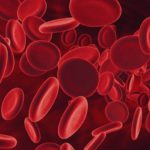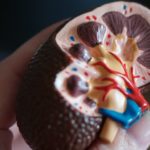Adult ADHD – how to diagnose and treat it?
Attention deficit hyperactivity disorder is a behavioral disorder that results in a short attention span, easy distractibility, impulsiveness, hyperactivity, and a high level of frustration. These people can be divided into three groups depending on the predominant features and are predominantly hyperactive-impulsive type, predominantly inattentive type, and mixed type. The onset of this disorder occurs during childhood and then it often persists into adulthood. This condition is five times more common in males and is predominantly hyperactive-impulsive type. The predominantly inattentive type is more common in girls.
What are the risk factors for adult ADHD?
The risk factors increase the likelihood of this disorder. These factors include family history, hereditary factors, associated disorders like learning disabilities, mood disorders, defiant behavior, and conduct disorder.
Though the exact cause is not known, brain scans have shown that there is altered brain activity in the prefrontal region of the brain. This makes them impulsive and hyperactive. Maternal and childhood exposure to certain toxins is associated. Research has shown that children of women who smoke tobacco, consume alcohol, or are exposed to polychlorinated biphenyls during pregnancy are more likely to develop ADHD.
What are the signs and symptoms of adult ADHD?
The features of inattention in these people manifest in many forms. Examples include careless mistakes in routine tasks, inability to sustain attention, not listening to instructions, not following or completing a given task, inability to prioritize tasks, avoiding work that requires a sustained effort, losing personal things frequently, easy distractibility, and forgetfulness.
Hyperactivity-impulsivity disorder manifests with fidgety behavior, difficulty in sitting steady at a place, running and climbing excessively, difficulty in playing or working quietly, speaking excessively, replying before a question is completed, not waiting for a turn, and interrupting others.
How is adult ADHD diagnosed?
The diagnosis of this condition is based on detailed history and behavioral testing. The history should include birth and developmental history, complete psychological assessment of the environment at home, and performance at school. Behavioral testing involves the use of behavior rating scales before and after treatment to assess improvement. Tests for learning disabilities are also done.
In some cases, EEG (Electroencephalogram) is done to rule out a special type of seizure called absence seizure.
What is the treatment of adult ADHD?
1. General prevention of this condition includes the care of children at risk for abuse, depression, and social isolation. Parental support and advice should be provided by dedicated agencies. Parents should also make efforts to make frequent contact with school teachers.
2. Stimulant drug therapy: Before starting such treatment, it is recommended to exclude congenital heart disease by doing EKG and cardiac Doppler studies. This is done to prevent the risk of sudden death on starting such therapy.
The stimulant drugs include methylphenidate and amphetamines. If the affected person is not responding to this treatment, check for compliance is required or the diagnosis may need to be reassessed. Missing a dose may result in withdrawal that manifests with agitation and tearfulness. Since stimulants are drugs of abuse, treatment should be monitored carefully. Drug holidays may be required in selected cases with significant improvement.
3. Non-stimulant drugs are the second option for drug therapy. They include atomoxetine, clonidine, tricyclic antidepressants, and selective serotonin reuptake inhibitors. One should be careful in people receiving atomoxetine as it increases suicidal tendencies. It is also recommended that the treating physician visits or assesses the patient weekly, following which the frequency is reduced.
4. Behavioral therapy along with medications is recommended. It results in significant improvement that is sustained.
5. Nutritional supplements like omega-3 fatty acids in fish oils help in improvement in rating scales.
Adult ADHD is a behavioral disorder that is related to exposure of a child to extreme stress. Prevention of such exposure can certainly improve the quality of life of a person though it may not be practical in every circumstance. Early medical consult is recommended for improvement.




























